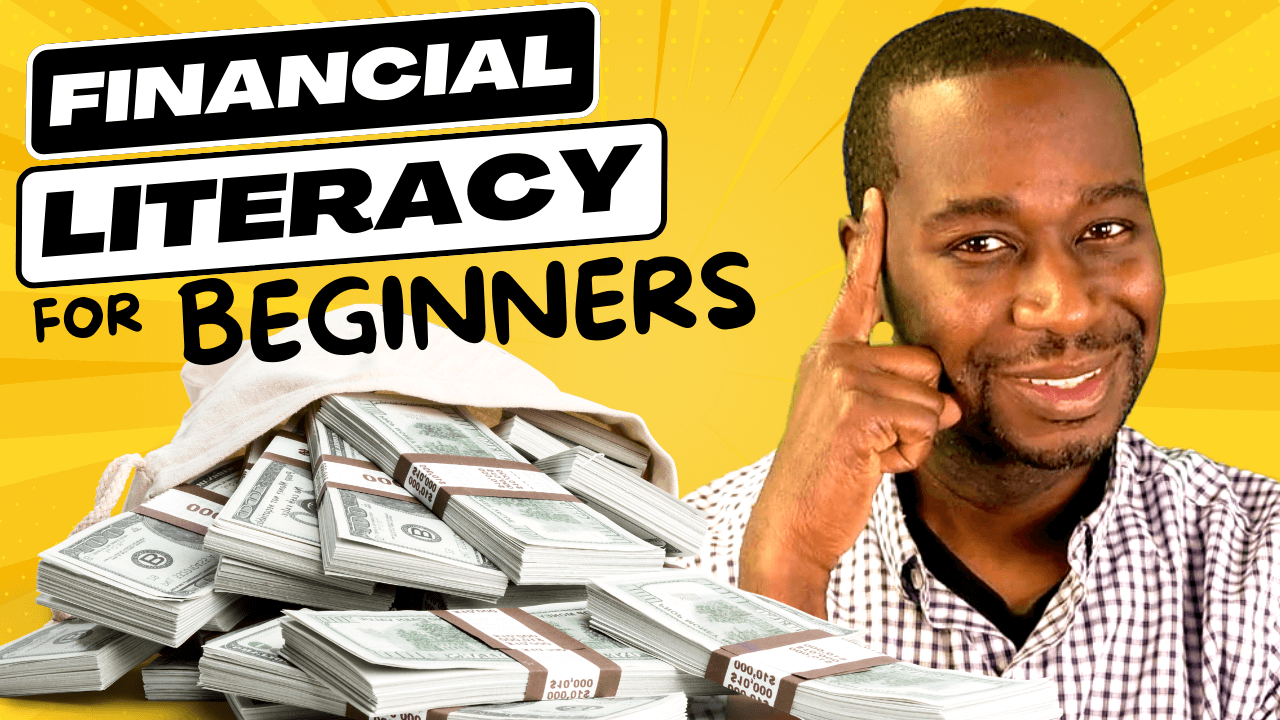Starting With The Basics
Building your financial literacy doesn't happen overnight, but over time and dedication, you can work on building to become more literate with your finances.
I remember when I first got started taking my finances seriously. I wanted to enjoy the money I made, but quickly realized it was going fast. Too fast.
So I had to sit down and take a look at what my income was and where my money was going. To say it was eye opening is an understatement.
So I sat down and figured out the five categories of financial literacy and what I could do to make my monthly income go farther for me.
Audio Version:
Video Version:
1. Earning
Most people earn income one of two ways.
Active income is money earned through an action, such as a salary or hourly wage.
Passive income is something that doesn't require consistent action, such as purchasing a building and then renting it out to a tenant.
Knowing how you make income sets you up for budgeting and planning. It also sets you up to think about your personal inflow of money. If it takes you two weeks to earn $2,000, but on one Saturday night you can spend $2,000... well, that was two weeks of work spent on one night.
You can also think about the replacement cost - how long will it take you to replace those funds once they are spent?
2. Spending
Talking about spending needs to go a little deeper than just what you make versus what you can spend. We should break down our spending into two categories: needs and wants.
Our needs would include things we need to survive, such as food, shelter, and transportation. Although transportation does fit into the "need" category, whether it's a car, bus fare, or a bike, that doesn't mean the most expensive model is necessarily a need.
Everything else for the most part would be a want. If we don't require it to stay alive, then it's simply a want.
3. Budgeting
To some people, budgeting is a bad word. But we have to reframe that thinking to budgeting is a permission to spend. Budgeting can give you the freedom to do what you want to do.
We want to set a budget to accommodate two different types of budgets: fixed and variable expenses.
Your fixed expenses are going to be things that stay the same each month, like rent. Variable expenses will be items that change every month, such as a gas or electric bill. Those bills can fluctuate based on the season or activities you are doing.
The key to a good budget is using a form. By placing in all of your fixed expenses first, you then can have a better idea of what you have left for variable expenses. Once those expenses are accounted for, then we know how much money can go toward the "want" category.
4. Investing
Once we have our budget set, maybe you'll realize you may be able to put aside some money to invest in the market as well. It could be just $50 or $100 a month to put in the market.
Active investing is actively going on the open market to buy stock. You are active inside of your investments and making them happen.
Passive investing is through a financial planner who will invest for you, or utilizing your 401k through your work.
When thinking about investing, consider if you first want to invest, and then think about what type of investing you'd like to do. Do you want to be actively in the market and making trades, or focusing on your job and making funds in the background?
5. Credit Cards and Loans
This last category can trip a lot of people up. Some look at credit cards as evil and some financial advisors would agree.
Credit cards should be handled with care, but they are not evil. It's all about responsible usage. If your car breaks down but you don't get paid for another two weeks, you can get the repairs now and pay off the cost within 30 days by using a credit card.
Once your budget is set and you know how much variable income you have left, you know how much you can put toward paying off that debt.
The same thing is with loans. Many people have to take out a mortgage for a home purchase. In this case, a loan is a good thing because it helps you obtain your home. This satisfies your need for shelter.
Sometimes houses will even gain value over time, and you're able to sell the home and profit off the sale.
When we do take out a mortgage, we want to look at the big picture. What is it really costing me over 30 years? Are you able to make an extra payment to pay it off earlier?
Building Our Financial Literacy
We want to focus on these five categories to help build our financial literacy. Once we sit down and take a look at our finances and organize them, it makes saving or investing so much easier when we realize we maybe do have those extra funds available.
Whether you want to use a premade form for budgeting or create your own, taking a deep dive into your finances will help set you on the right path for 2023 and beyond.
